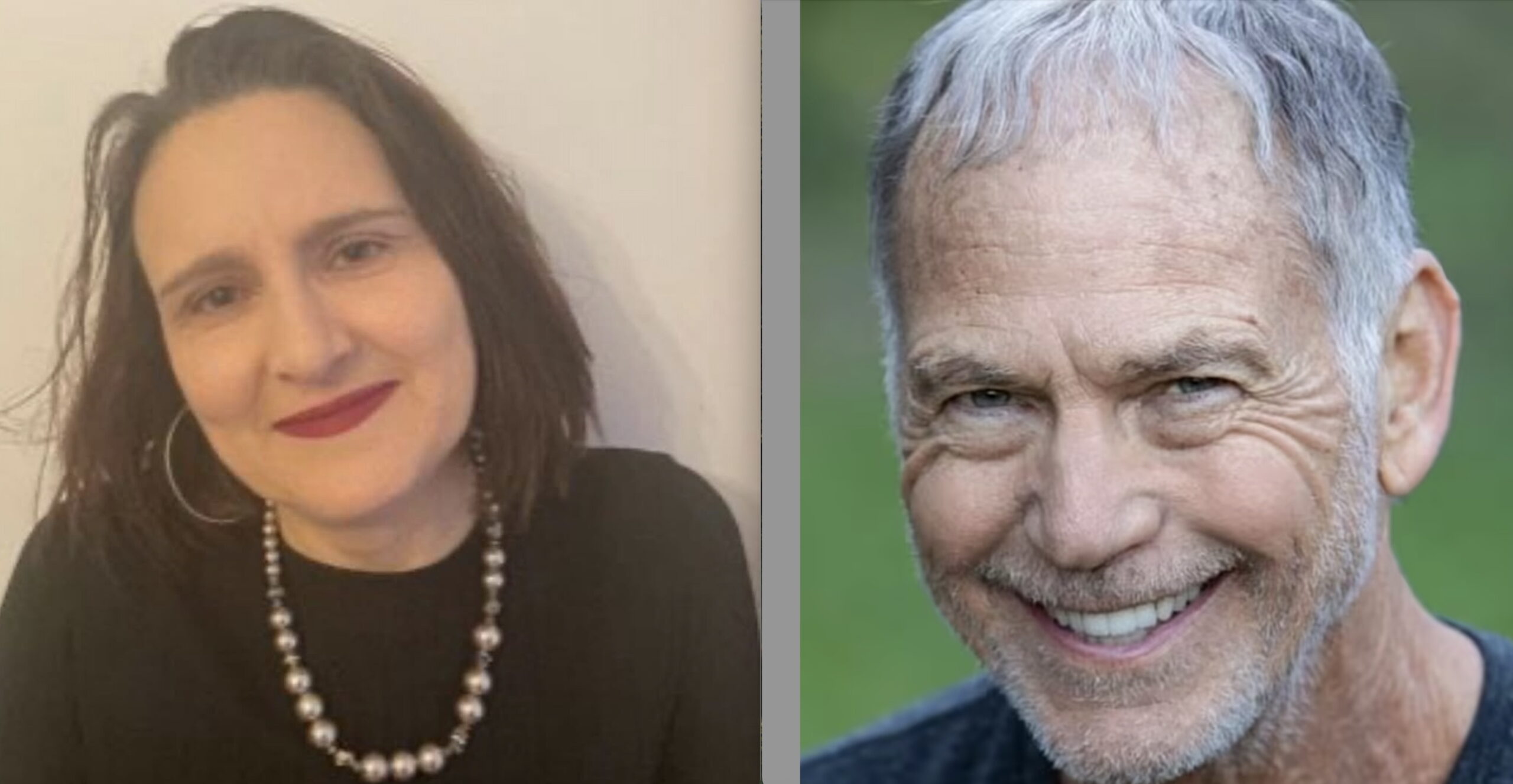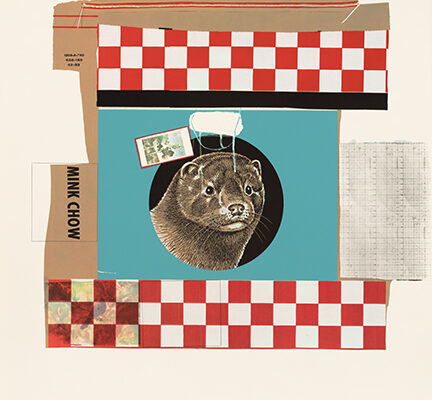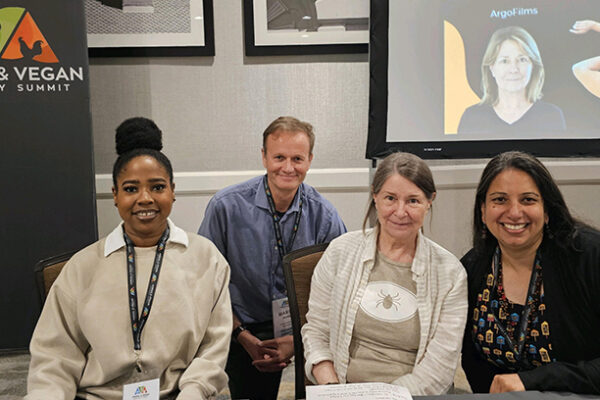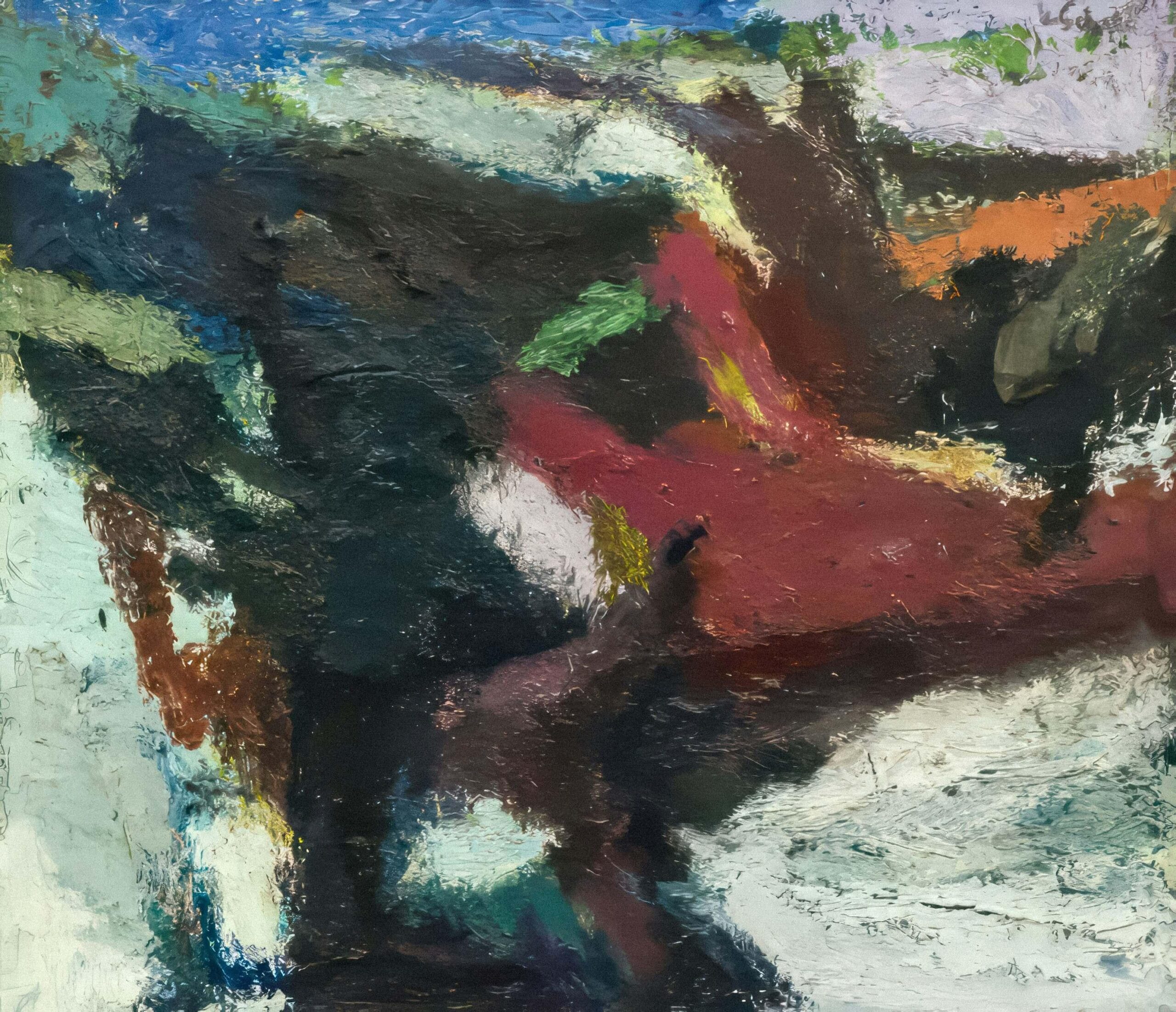Martin Rowe reflects on the passing of John Robbins and Paula Sparks.
I never met in person the late John Robbins (right) or Paula Sparks, both of whom died within a week of each other, and they probably didn’t meet each other either. Robbins (1947–2025), the author of Diet for a New America (1987) and The Food Revolution (2001), kindly wrote a number of blurbs for some of the books that I published at Lantern Books, and I made a small donation when virtually his entire life savings were wiped out by Bernie Madoff’s greed. I knew Paula only through Zoom, as the founder of the UK Animal Law Centre, and the main force behind the conference celebrating the bicentenary of Martin’s Act in 2022. Each of them made important contributions in very different aspects of animal advocacy, and the loss of Paula (who died young of ALS) will be felt particularly acutely.
But in thinking about the passing of advocates, whether elders or in the prime of their lives, I’m struck by both the wish to memorialize and yet how limited, as advocates, our knowledge of our advocacy and history is. This is particularly resonant for me, since CAF is currently conducting an oral history with animal advocates in their seventies and eighties, many of whom became conscientized and/or began their work or in the 1960s. Their individual and social memories reach back thirty or forty years more, presenting a rich set of perspectives that encompass a wide range of social engagements beyond animal rights—for instance, civil rights, labor and housing rights, natural hygiene, food justice, environmental activism, gay liberation, peace work, and many religious traditions.
This is why, when I think of Robbins’ Diet for a New America, I’m reminded of its predecessor: Frances Moore Lappé’s Diet for a Small Planet (1971). Tom Regan’s pamphlet The Basis for Vegetarianism (1975) evokes Mahatma Gandhi’s lecture of the same name, which the latter presented in 1931 at the London Vegetarian Society, and which was published in 1959. Gandhi’s childhood vegetarianism was, Gandhi admitted, given moral depth through his close friendship with Henry Salt (1851–1939), whose essay “A Plea for Vegetarianism” (published in 1886), Gandhi read when he lived in London in the 1890s. Salt, in turn, was influenced by the vegetarian writings of Percy Bysshe Shelley (1792–1822), who married the daughter of radical social reformers William Godwin and Mary Wollstonecraft. That daughter, also called Mary, would write Frankenstein, whose monster is vegetarian. Shelley’s A Vindication of Natural Diet (1813), which owes a debt to John Frank Newton’s Return to Nature: Or a Defence of the Vegetable Regimen (1811), echoes Wollstonecraft’s A Vindication of the Rights of Woman (1792), which was her follow-up to A Vindication of the Rights of Man (1790), which was her response to conservative Edmund Burke’s Reflections on the Revolution in France (1790). And thence to Jeremy Bentham (1789), Humphrey Primatt (1776), and so on, and so on.
This is just a segment of one of many lineages that place the contemporary discussion of “Why veg*ism?” within a 250-year tradition that binds animal advocacy to notions of human liberty, women’s rights, abolitionism, religious (or irreligious) freedom, natural hygiene, and idealism of all kinds. As such Robbins and Sparks are one link in a long and tangled chain of voices and ideas. To my mind, these are not shackles that fasten us to the past but vital strands connecting thoughts and messages and actions across space and time, like mycelia in a mighty living organism.
This intergenerational interweaving should teach us humility: there are no new ideas, we are not the beginning or center of anything, and we are emphatically not the final word. But it should also encourage us. We are not alone, our efforts are not in vain, we will be followed by others, just as we followed them. And it also should remind us that our brothers and sisters in other movements are part of our lineage, too, as we are of theirs. Like us, they may be ignorant of their own heritage of ideas and activism; and, like us, they may feel similarly alone. That’s why this knowledge should compel us to understand and honor our many intersecting and bifurcating histories, and reach out.




